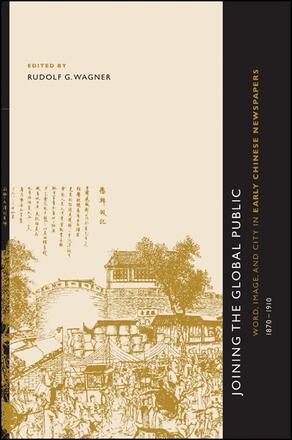
Joining the Global Public
Word, Image, and City in Early Chinese Newspapers, 1870-1910
Alternative formats available from:
Explores the early Chinese press, which emerged in the late nineteenth and early twentieth centuries, and its impact on China’s modernization.
Description
Joining the Global Public examines early Chinese-language newspapers and analyzes their impact on China's modernization. Exploring a range of media such as regular dailies, illustrated weeklies, and entertainment papers, contributors look at factors that influenced the nature of these publications, including foreign models, foreign managers, and a first generation of Chinese journalists, editorialists, and "newspainters. " With analyses demonstrating how the growth of popular media would enable China to join the global public, contributors also examine the impact of inserting an alien medium—a newspaper—into a Chinese universe and note the spread of new attitudes and values as entertainment papers filled the space of a newly created urban leisure. A superb and pioneering documentation of late nineteenth- and early twentieth-century Chinese-language media, Joining the Global Public serves as an introduction to this important yet little-studied part of China's modernization.
Rudolf G. Wagner is Professor of Chinese Studies at the University of Heidelberg and the author or editor of many books, including A Chinese Reading of the Daodejing: Wang Bi's Commentary on the Laozi with Critical Text and Translation, also published by SUNY Press.
Reviews
"…this book is filled with stimulating ideas, considerations, and descriptions one has read about never before. Thus, this collection of essays is highly recommended, not only to those who do research on the early history of the news media in China but also to anyone interested in the complex transformation process that China underwent on its way toward modernity. " — China Review International
"No one has done more to advance our knowledge and understanding of late Qing media and the 'public sphere' than Rudolf G. Wagner and his fellow scholars clustered around the University of Heidelberg … This collection considerably enhances the current literature on the development of China's modern, urban press and print culture. " — Journal of Asian Studies
"…quite simply the single best work in English to turn to now if one wants a sophisticated introduction to Shanghai periodicals during a crucial period in both that city's development and the history of the Chinese press. " — China Quarterly
"This book is extraordinarily interesting to read and the most fascinating work on Chinese history I have read in quite some time. Contributors keep coming back to the much-discussed issue of a Chinese 'public sphere,' but avoid the mechanical consideration of this question that dominates the recent literature. Instead, we get a very wide range of insights into matters of cultural, political, and social change, as signified in the pages of the journals under study. " — William T. Rowe, author of Crimson Rain: Seven Centuries of Violence in a Chinese County